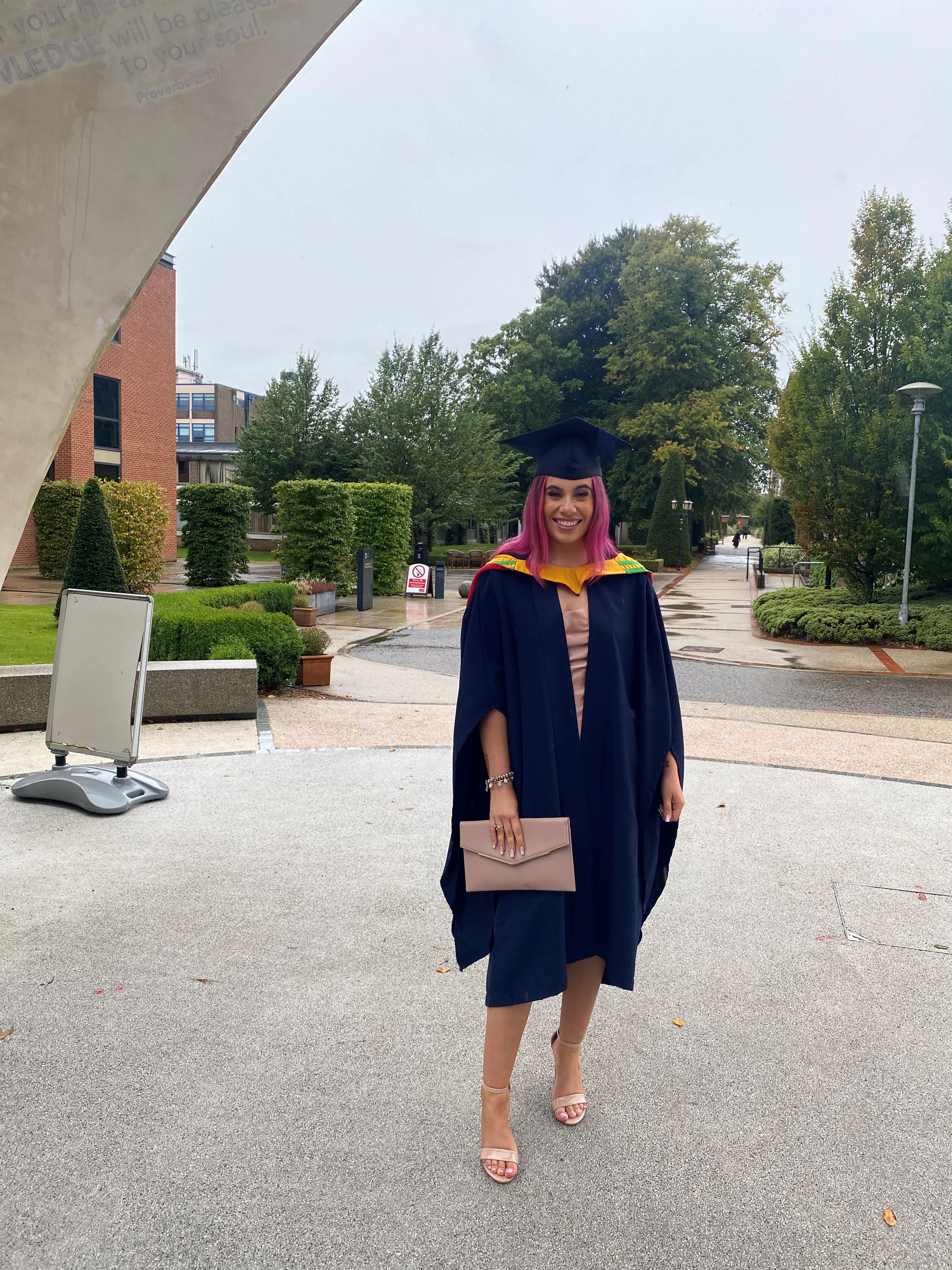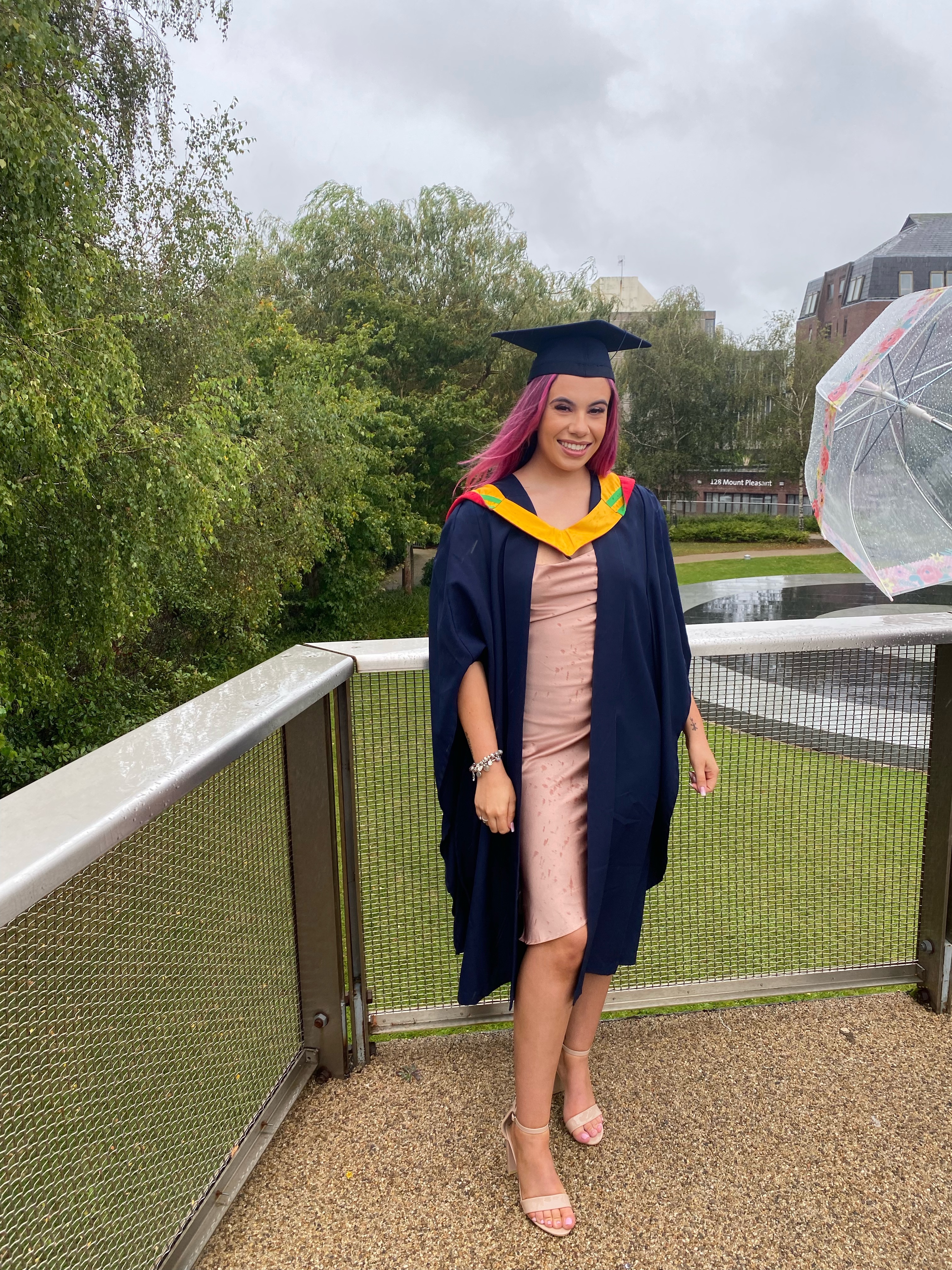Aimee Fletcher says it’s a sad truth that there will always be a desperate need for people who do her job.
And when that job is to support the victims of domestic abuse, it’s a worthwhile role indeed for university graduates.
Aimee studied for a degree in Psychology and Early Childhood at Liverpool Hope University, and has found herself in great demand as an Independent Domestic Violence Advocate, or ‘IDVA’, with Sefton Council.
The 23-year-old often finds herself working with so-called ‘Gold’ service users - ie, those at the very worst end of the domestic abuse spectrum and who find themselves in her care following an incident that required police intervention.
Prior to this, Aimee also worked in a refuge for 12 months as a Children’s Team Manager.
Aimee, from Speke, south Liverpool, explains of her work as an IDVA: “Most of the time you’ll find that there’s been an incident, the police have been called, and then the victim is referred to us.
“The vast majority of victims are female, but we do have male service users, too.
“And it’s my job to perform a risk assessment to get a real sense of the incident, and then work towards safety planning, getting the victim into a refuge, helping them with civil court orders, and essentially advocating for them in general while operating in conjunction with social care workers.”
Aimee says it’s a job that requires intuition and being able to think on your feet. But it also takes much more than that.

She adds: “You need to trust your own judgement. Of course, I can pick up the phone and get advice from a colleague but it’s not always possible to do that.
“So you have to stay calm - something I’m thankfully quite good at. If someone tells you that they’re going to kill themselves by suicide, how do you respond to that? It’s no use if you’re flapping at the other end of the phone because having a reaction like that can have really negative consequences.”
Aimee is currently studying part-time for a Master’s degree in Developmental Psychology at Lancaster University but also plans to apply for a PhD focusing on domestic abuse back at Hope.
As for other attributes you might need for this line of work, Aimee suggests: “You need good emotional resilience and the ability to not take your work home with you.
“There’s a phrase called ‘vicarious trauma’, whereby people like myself suffer emotionally because of the things we have to confront. I’m exposed to the very worst of humanity every day but you can’t let it cloud your overall view of the world.
“That’s why you need to be really robust and resilient. I’m lucky that I love my job and I’m passionate about it. And I think that passion is absolutely essential in doing the job properly.”
Aimee says the global pandemic caused a huge spike in domestic abuse cases, but those large numbers of victims appear to be plateauing as the impact of Covid-19 wanes.
She also points to how the Domestic Abuse Act 2021 has also brought about some extremely positive changes, not least the fact that courts will recognise children as victims of domestic abuse in their own right, not just as eyewitnesses. The crime of ‘coercive control’ has also been enshrined in law.
And Aimee argues: “It’s very sad to say this, but there’s always going to be a need for people like me who do this job. That benefits me, and graduates like me, but it’s clearly horrendous for the people who need our help.
“And as an IDVA, you’ll have to deal with the consequences of legislation surrounding domestic abuse.
“You’ll read police referrals, you listen to people telling you how they feared they might die, you encourage victims to give statements and go to court to relive the whole traumatic period of their lives again.. only for the case to ultimately be dropped by the police or the Crown Prosecution Service.
“It can be extremely frustrating, to say the least. As an IDVA, you’re in the firing line and you need thick skin.”
When it comes to her time at Hope, Aimee says she can’t recommend it enough.
She actually started a degree at a different, local, red-brick university… but disliked it enough to quit after just a year. Aimee chose Hope instead - and has thrived ever since.
She explains: “At Hope the staff are great and you’re taught in small groups. And the lecturers know you, by face and by name. Just having that support - where you can knock on someone’s door and ask for advice - is absolutely invaluable.
“Since I left, I’m still in touch with my lecturers and I’d have no hesitation at all sending them an email asking for help. Besides the teaching, the Hope campus is also absolutely beautiful - just gorgeous.”




